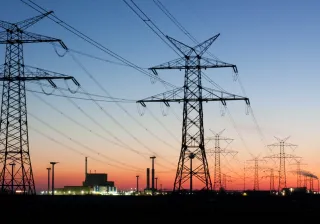Asko Arkoma, M.Sc. (Tech.), Research Scientist at VTT, modelled in his dissertation the behaviour of nuclear power plant fuel rods in design basis accident conditions
Various accidents must be taken into consideration in the design of nuclear power plants and the fuels used in them. Arkoma studied in his dissertation design basis accidents that are postulated to occur less frequently than once in one thousand operating years and which a nuclear power plant is designed to withstand without radiation impacts on the population.
In the dissertation, a statistical analysis methodology for the evaluation of the number of fuel rod failures in a loss-of-coolant accident (LOCA) was developed, and the underlying factors affecting the failures were determined by means of a sensitivity analysis. This type of accident refers to leakage from the reactor's cooling system due to a break in a coolant pipe. The SCANAIR software, which models the fuel behaviour in a reactivity-initiated accident (RIA) in which reactor's fission rate and power increases rapidly, was adapted for boiling water reactor (BWR) conditions.
The applied computer programs model the behaviour of single fuel rods in transient and accident conditions. In a reactor, the rods are grouped into fuel assemblies, and a reactor contains hundreds of assemblies.
Postulated accidents are typically studied in test reactors and in separate effect tests giving insight into individual phenomena. In order for these experimental results to be applied in power reactors used in generating electricity, computational modelling is required to scale the results. With the combination of testing and modelling, the safety of nuclear power can be ensured under all situations.
Dissertation: Modelling design basis accidents LOCA and RIA from the perspective of single fuel rods.
Date and venue: Thursday 8 March 2018, at 1 p.m., Aalto University, lecture hall H304, Otakaari 1, Espoo.





